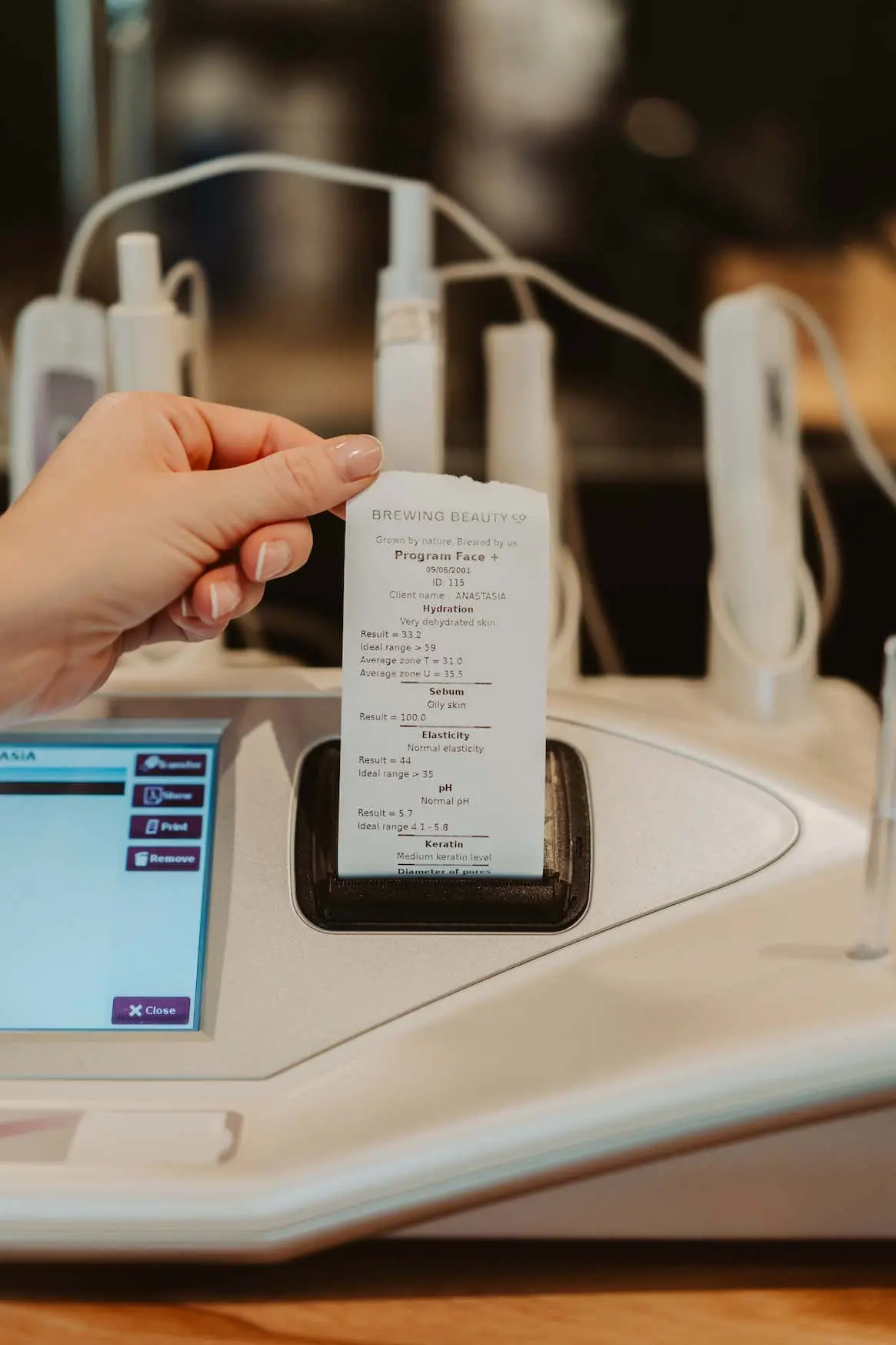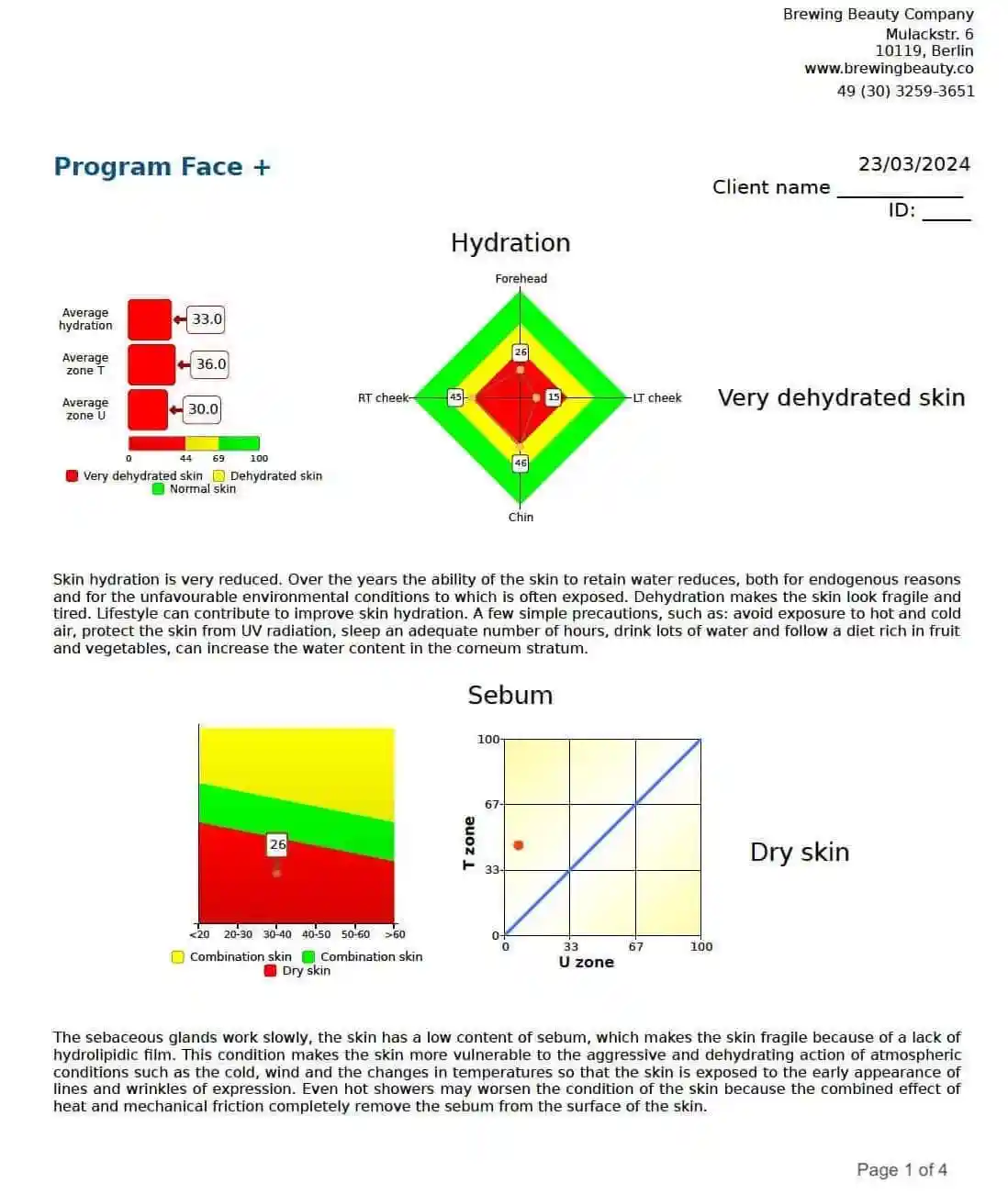Why skin analysis matters
Have you ever reached for a moisturiser, retinol, or exfoliating treatment based on a hunch? While these products may work for others, relying solely on instinct can lead you down the wrong path. Studies show that many people misdiagnose their own skin type! It's difficult to differentiate between sensitive, dry, or dehydrated skin without professional help.
Wouldn't you consult a doctor for a fever or headache? Why treat your skin differently? Our skin analysis uses established scientific methods to uncover the true cause of your skin concerns. Armed with this knowledge, we can recommend the perfect off-the-shelf Brewing Beauty products OR create a custom-formulated routine through our made-to-order skincare service.
How much does a skin analysis cost?
A professional skin analysis, which costs between 50 and 100 Euros at a typical beauty clinic or spa, is offered free of charge at Brewing Beauty Company so that our customers can make the right choices when selecting skin care products.
By taking advantage of our free skin analysis, you'll receive a personalised roadmap to achieving your skincare goals.
Take control of your skin's health and unlock its full potential. Schedule your free skin analysis today!






